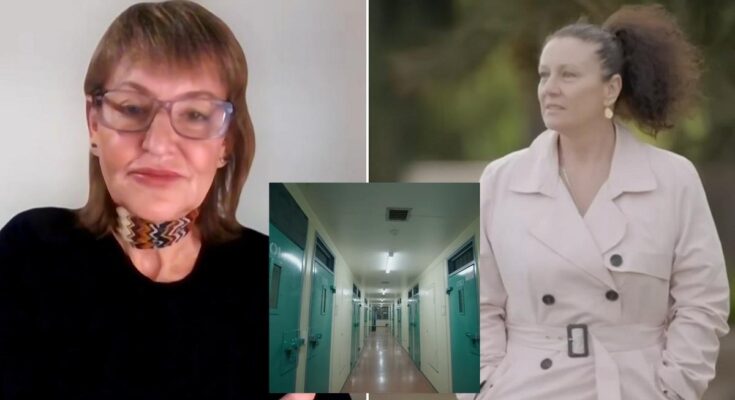The Inadequate Compensation Offered to Kathleen Folbigg: A Travesty of Justice
Kathleen Folbigg, wrongly imprisoned for 20 years for the deaths of her four children, has been offered a paltry $2 million ex gratia payment by the NSW government. This figure, however, is far from reflecting the devastating impact of her wrongful conviction, a point vehemently underscored by her closest confidante and legal counsel.
A Friend’s Outrage: “Disgraceful” and “Inhumane”
Tracy Chapman, Folbigg’s best friend and live-in companion, expressed profound shock and dismay at the offered compensation during a recent appearance on Sunrise. “Disgraceful” and “inhumane” were her stark assessments. Chapman eloquently highlighted the immeasurable suffering Folbigg endured, emphasizing that the trauma inflicted isn’t something easily dismissed. The emotional and psychological scars, she asserted, will forever remain. Furthermore, Chapman brought attention to Folbigg’s functional needs and the significant financial challenges faced, even during the relatively short seven months since her release. Considering Folbigg’s age and the realities of ageism within the workforce, securing sustainable employment presents a formidable hurdle. The $2 million, Chapman argued, is simply inadequate considering the totality of Folbigg’s losses.

Legal Counsel Echoes Concerns: A Systemic Failure
Rhanee Rego, Folbigg’s lawyer, shared similar sentiments, stating that the meager compensation wasn’t surprising given the systematic mistreatment Folbigg has faced since her initial arrest in 1999. Rego highlighted the absurdity of quantifying the cost of wrongful imprisonment, emphasizing that the $2 million figure reveals the government’s deeply flawed valuation of a woman’s life unjustly stolen. She advocated for a parliamentary inquiry into the Attorney-General’s decision, a call supported by both the Nationals and Greens, aiming to expose the rationale behind such a low offer. The entire process, according to Rego, speaks to a system that fails to acknowledge and compensate adequately for such profound injustice.

Comparisons and Context: A Lack of Proportionality
The $2 million pales in comparison to other ex gratia payments awarded in similar circumstances. Lindy Chamberlain received $1.3 million in 1992, and Scott Austic received $1.3 million (in addition to a previous payment) after his wrongful conviction. These comparisons highlight the incongruity and perceived injustice of the offer made to Folbigg, particularly given the length of her imprisonment (20 years) and the profound nature of her ordeal. While acknowledging the unique nature of ex gratia payments, the stark difference in amounts awarded raises serious questions regarding consistency and fairness.

Political Response: A Condemnation of the Offer
The offer has drawn widespread criticism from across the political spectrum. Greens MP Sue Higginson characterized it as “an absolute slap in the face” and a failure of the NSW Premier to uphold justice. Similarly, Nationals MP Wes Fang voiced his concerns, noting that the offer was made on the same day upper house members were advocating for an inquiry. These statements further amplify the public’s dissatisfaction with the government’s handling of the matter.

The Ongoing Fight for Justice: Beyond Financial Compensation
The fight for justice for Kathleen Folbigg extends beyond the financial aspect. The lack of a sincere apology from the government, the ongoing struggle to rebuild her life, and the need for systemic reform to prevent similar injustices are critical elements of the larger narrative. Chapman and Rego are working on a book detailing Folbigg’s ordeal, highlighting the flaws within the justice system and underscoring the need for accountability and systemic change. The case serves as a stark reminder of the devastating consequences of wrongful conviction and the urgent need for a more compassionate and just approach to compensating victims of such egregious errors.


